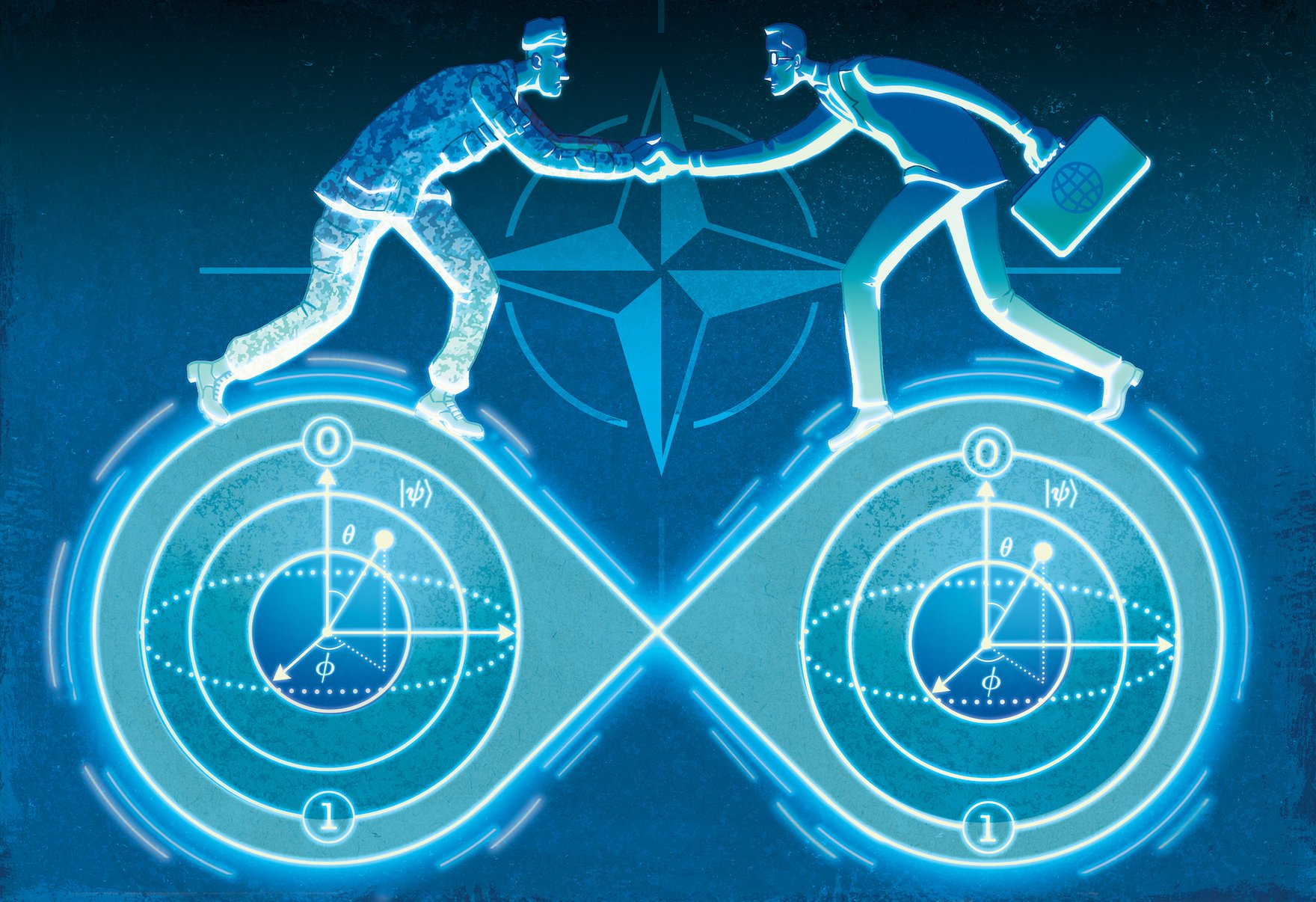What if Canada could simultaneously develop cutting-edge technologies, prepare for new national security threats and make progress on its North Atlantic Treaty Organization (NATO) target of two percent of GDP defence spending? A new generation of quantum technologies may provide this opportunity.
A skeptic might argue that quantum technologies are not advanced enough, forgetting that first-generation technologies brought us lasers, semiconductor-based transistors and magnetic resonance imaging, to name a few. And today, many emerging quantum technologies point to unique abilities to leverage and control previously inaccessible properties of nature.
As a dual-use technology, quantum can be used for both significant benefit and harm. It’s a new paradigm for achieving the ultimate level of efficiency that nature allows. Applications for materials discovery, drug design, chemistry and more abound. Quantum sensors will advance health diagnostics, mineral discovery and monitoring of greenhouse gas emissions. Quantum computers will redefine computing with their speed and capacity.
These ground-breaking capabilities also have the potential to confer strategic military advantages, such as attacking an adversary’s encryption methods, enabling unbreakable communications, and enhancing subsurface and stealth target identification.
The opportunities and risks are amplified when artificial intelligence (AI) is used to accelerate development, or when quantum is combined with autonomous systems.
Further, emerging quantum computers present an urgent national security issue. We must assume that malicious actors are storing today’s internet traffic to break the cryptography later. Credit card numbers change regularly, but financial, health-care and government data are more vulnerable.
To that end, since 2016, the US National Institute of Standards and Technology has challenged the world’s cryptographers to develop methods that are resilient to quantum computers. New codes are now developed and standardized and will be announced later this year. And the migration of existing cryptography to the new codes requires understanding the supply chain, an assessment of the quantum risk and engagement with technology companies.
Indeed, building secure cryptography and quantum technology presents a unique opportunity to bolster Canada’s economic productivity and military capability.
There is an opportunity here for Canada, which has strong expertise in cryptography and many mature companies and start-ups, to help lead critical coordination and global cooperation.
Indeed, building secure cryptography and quantum technology presents a unique opportunity to bolster Canada’s economic productivity and military capability. One path is through increased research and development (R&D) expenditures appropriated under the defence budget.
NATO has a common definition of defence expenditure that includes basic R&D costs, even those not tied to the production of equipment. In response to international pressure to increase defence spending, Canada’s 2024 federal budget recognized the growing importance of cyber-, climate- and outer space-based threats, as well as emerging risks to our sovereignty in the Arctic.
However, at best, new funding will take Canada to about 1.75 percent of GDP by 2030, still well short of the NATO target of two percent. Expect the United States and other NATO allies to continue to increase the pressure, perhaps even linking defence spending to trade and other considerations.
Canada’s response should be to increase spending on quantum and other emerging technology R&D appropriated under defence, even when executed by other parts of the government. If there is resistance, Canada should insist on the inclusion of such R&D as part of the NATO definition, given the strategic importance of these technologies.
Canada has been a world leader in developing quantum science and technologies, in large part due to early investments by public and private sectors. The federal government’s 2023 National Quantum Strategy and the military’s Quantum S&T Strategy reinforce this direction.
But why doesn’t Canada aim to compete more actively internationally? Over the next few years, the country has opportunities to become the world leader in many aspects of quantum technology and regulation. Moreover, as chair of the G7 in 2025, Canada can lead in shaping international coordination on quantum technologies, alongside AI.
New and growing threats in the Arctic create a need for Canada to strengthen its position with emerging technologies such as quantum-enhanced radar and quantum-enhanced light detection and ranging. Fiscal constraints won’t deter allied pressure. Canada can thus advance on its NATO target through R&D investments in quantum and other emerging technologies.
In addition, regardless of who becomes the next US president, emerging national security threats on the continent will require Canada to transform its approach. A focus on new technologies is exactly what’s needed.
This article first appeared in The Hill Times.



